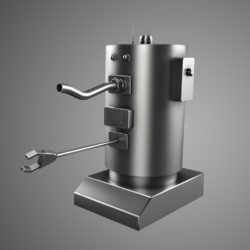To provide the best experiences, we use technologies like cookies to store and/or access device information. Consenting to these technologies will allow us to process data such as browsing behaviour or unique IDs on this site. Not consenting or withdrawing consent, may adversely affect certain features and functions.
The technical storage or access is strictly necessary for the legitimate purpose of enabling the use of a specific service explicitly requested by the subscriber or user, or for the sole purpose of carrying out the transmission of a communication over an electronic communications network.
The technical storage or access is necessary for the legitimate purpose of storing preferences that are not requested by the subscriber or user.
The technical storage or access that is used exclusively for statistical purposes.
The technical storage or access that is used exclusively for anonymous statistical purposes. Without a subpoena, voluntary compliance on the part of your Internet Service Provider, or additional records from a third party, information stored or retrieved for this purpose alone cannot usually be used to identify you.
The technical storage or access is required to create user profiles to send advertising, or to track the user on a website or across several websites for similar marketing purposes.
 New research suggests there is a widening gulf in the use of AI tools between senior leaders and junior staff, raising concerns that productivity gains from the technology are being unevenly shared. According to the Work that Works report from employment platform Employment Hero, nearly three-quarters of senior managers in the UK use AI tools each month. Among entry-level staff, that figure falls to just 32 percent. (more…)
New research suggests there is a widening gulf in the use of AI tools between senior leaders and junior staff, raising concerns that productivity gains from the technology are being unevenly shared. According to the Work that Works report from employment platform Employment Hero, nearly three-quarters of senior managers in the UK use AI tools each month. Among entry-level staff, that figure falls to just 32 percent. (more…)

































April 2, 2025
If you want your business to grow, become a digital leader
by Ross Pearson • Business, Comment, Technology